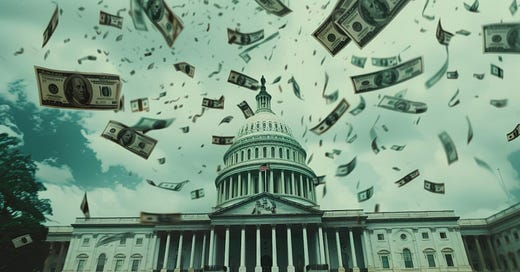On trying to look beyond politics
Opportunities are out there for investors able to focus on fundamentals amidst the clamour of political debate.
Investors tend to prefer to look past politics to economic fundamentals. But in this year of elections the swirling hopes and fears of politicians and electorates have had an unusual bearing on the course of markets.
In Britain this week’s budget was as much a statement of political philosophy as financial management, signalling Labour’s intentions to reorient economic policy towards a social democratic programme of higher investment and taxation.
And in the US the presidential candidates, so far as their intentions can be discerned, seem to offer quite different visions of how the world’s most powerful economy should be managed.
Kamala Harris would likely persist with a variant of Bidenomics, prioritising the infrastructure spending that Republicans have blamed for contributing to high inflation. The Penn Wharton business school estimates that her programme would add another $2tn to the US debt burden. But the school forecasts that sweeping tax cuts introduced by a second Trump administration would be even more expansionary, adding at least $4tn to the primary deficit.
And Trump may add further fuel to the fire by questioning the independence of the Federal Reserve, and imposing a 20% tariff on goods imported from Europe and 60% on those from China.A basket of 28 European stocks that would be exposed to US tariffs, including LVMH, Volkswagen and London-listed Diageo (LON:DGE), has lost 7% over the past few weeks. Speculators have pursued a now well-worn ‘Trump trade’, the selling of US Treasury bonds in anticipation of a Republican victory that may bring higher inflation and interest rates.
Keep reading with a 7-day free trial
Subscribe to Master Investor to keep reading this post and get 7 days of free access to the full post archives.






